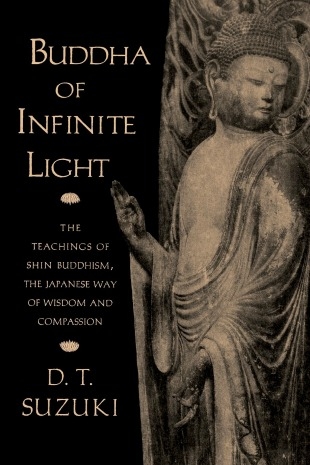This volume is a revised edition of a work first published in 1970 based on D. T. Suzuki's lectures at the American Buddhist Academy in the 1950s. Although Pure Land Buddhism originated in India, it flowered during the 13th century in Japan with the teaching of Shinran (1172-1263). Devotees of this spiritual practice — Shin Buddhism — were drawn primarily from the peasant class.
As Suzuki explains this teaching, Amida Buddha is infinite light and eternal life. A simple repetition of his name with singleness of heart enables one to step into a transcendent realm known as the Pure Land. This devotional path emphasizes faith in "other power." Salvation is all Amida's work: there is nothing one can do to achieve it. In fact, pride (self-power) has no place in the Pure Land where everything is dependent on grace. As Taitetsu Unno points out in the introduction, Shin Buddhism agrees with Christianity on this point.
The simple adoration involved in the vow "I take refuge in Amida Buddha" colors the everyday activities of Pure Land believers. Suzuki characterizes their lives as animated by humility, kindness, and joy. The way of devotion results in "excellence of person." And this state, in turn, emits "the wonderful fragrance of spirituality."
